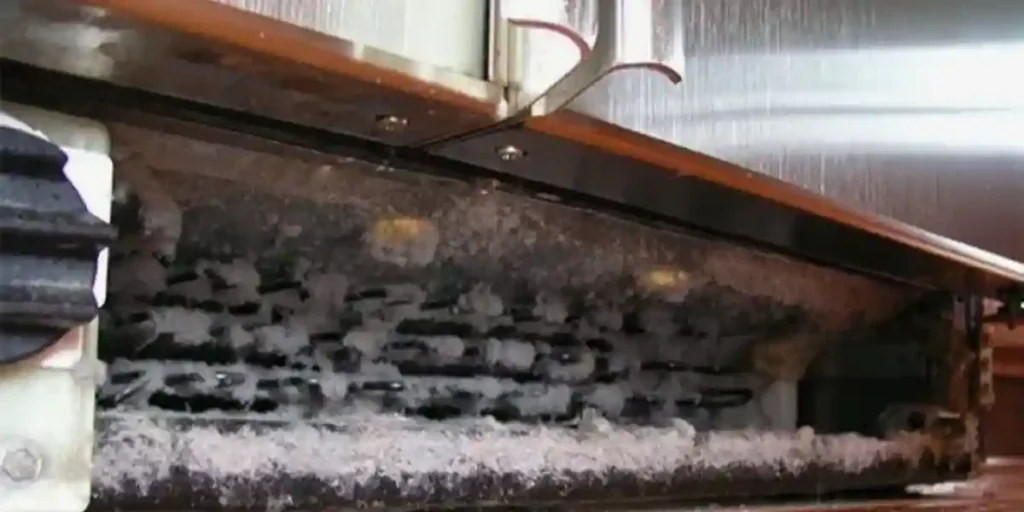Your refrigerator works hard to keep food fresh. But dirty coils can make it stumble. Dirty refrigerator coils reduce efficiency and hurt performance. They can even shorten your appliance’s life. Do you know the signs of dirty coils? Or how to clean them?
This article hands you these answers. You’ll gain knowledge on maintaining your fridge, saving energy, and prolonging its life. So, let’s start exploring.
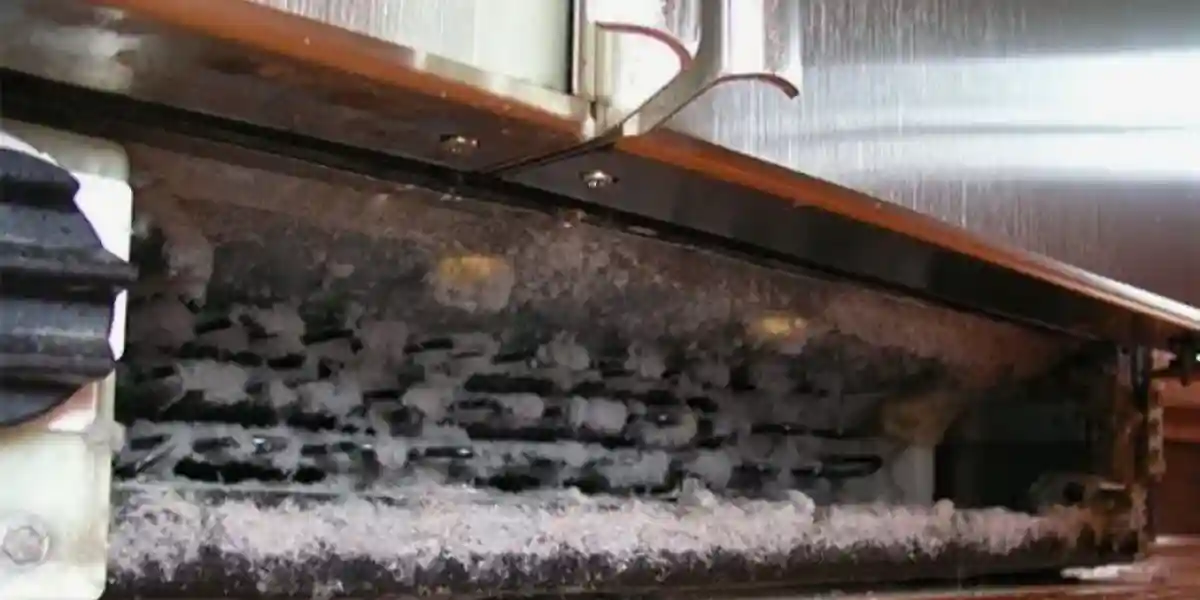
What Happens When Refrigerator Coils Are Dirty?
When refrigerator coils are dirty, they cannot transfer heat from the inside to the outside as effectively as they should.
This can lead to several problems, such as:
Higher energy consumption and costs
Dirty coils make the refrigerator work harder to maintain the desired temperature, which increases its energy use and electricity bills.
According to the U.S. Department of Energy, cleaning dirty refrigerator coils can save up to 6% of the appliance’s energy use.
This means that if your refrigerator consumes 500 kWh per year, cleaning the coils can save you up to 30 kWh or $3.6 per year (assuming an average electricity rate of $0.12 per kWh).
Reduced cooling capacity and food spoilage
Dirty coils reduce the refrigerator’s ability to transfer heat from the inside to the outside, which can result in higher internal temperatures and lower cooling efficiency.
This can affect the quality and safety of the food stored in the refrigerator, as well as increase the risk of bacterial growth and spoilage.
According to a study by Rutgers University, increasing the temperature of a refrigerator from 5°C (41°F) to 7°C (44.6°F) can reduce the shelf life of some foods by up to 40%. For example, milk can last for 21 days at 5°C, but only for 13 days at 7°C.
Shorter lifespan and higher repair costs
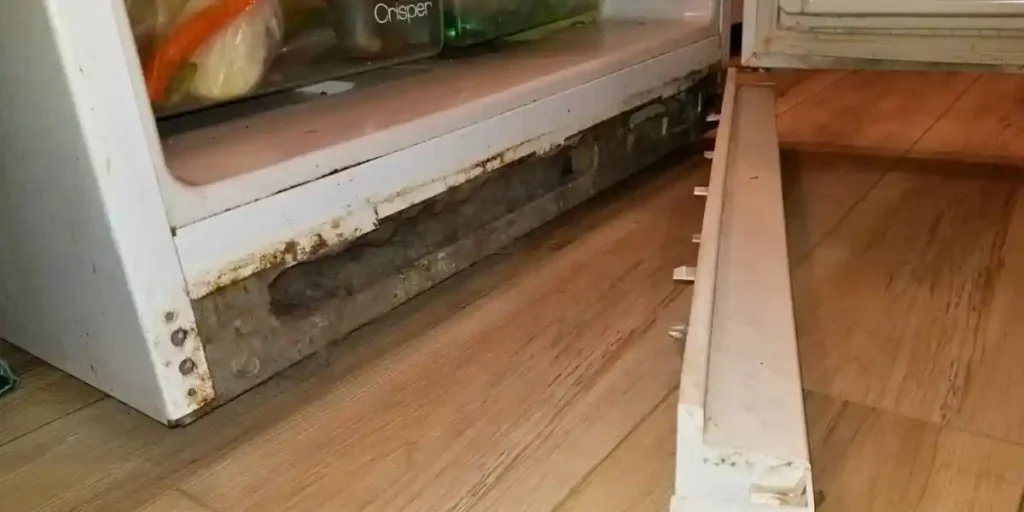
Dirty coils put more stress on the refrigerator’s compressor, which is the main component that circulates the refrigerant through the coils.
Overheating and overworking the compressor can cause it to fail prematurely, which can be very expensive to replace or repair.
A faulty compressor can also damage other parts of the refrigerator, such as the evaporator coil, fan motor, thermostat, and relay.
According to HomeAdvisor, the average cost of repairing a refrigerator compressor is $500, while the average cost of replacing a refrigerator is $1,200.
Health Risks Associated with Dirty Refrigerator Coils
Dirty refrigerator coils can also pose health risks for you and your family. As mentioned earlier, dirty coils can increase the temperature of the refrigerator and cause food spoilage and bacterial growth.
This can lead to food poisoning, which can cause symptoms such as nausea, vomiting, diarrhea, fever, and abdominal cramps.
According to the Centers for Disease Control and Prevention (CDC), food poisoning affects an estimated 48 million people in the United States every year, resulting in 128,000 hospitalizations and 3,000 deaths.
Some of the common causes of food poisoning are Salmonella, E. coli, Listeria, and Campylobacter, which can be found in raw or undercooked meat, poultry, eggs, dairy products, fruits, and vegetables.
Another health risk associated with dirty refrigerator coils is respiratory problems. Dust and dirt that accumulate on the coils can become airborne when the refrigerator is running or when it is moved or cleaned.
These particles can irritate your nose, throat, lungs, and eyes, causing allergies, asthma attacks, coughing, sneezing, wheezing, and eye infections.
According to a study by Yale University School of Medicine, exposure to household dust can increase the risk of developing asthma by up to 80%.
Asthma is a chronic condition that affects about 25 million people in the United States, causing inflammation and narrowing of the airways.
Cleaning Refrigerator Coils: A Step-by-Step Guide
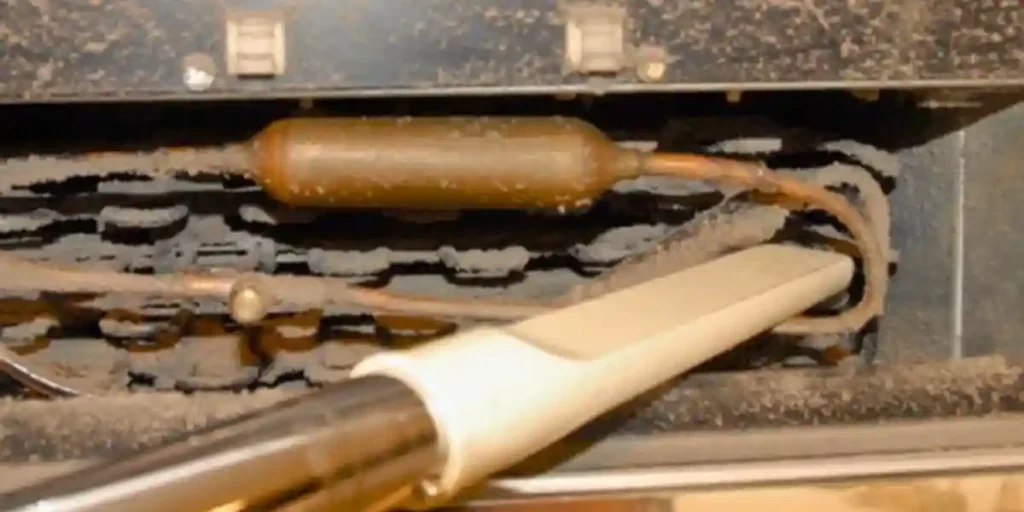
To prevent these problems from happening, it is recommended to clean your refrigerator coils at least once a year, or more often if there are pets or dusty conditions in your home.
Cleaning your refrigerator coils is a simple and easy task that can be done with a vacuum cleaner, a coil brush, and a screwdriver.
Here are some steps to follow:
Step 1: Unplug your fridge
Before you start cleaning your fridge coils, make sure you unplug your fridge from the power source. This will prevent any electric shock or damage to your appliance.
Step 2: Locate your fridge coils
Depending on your fridge model, your coils may be located either at the back or at the bottom of your fridge.
If they are at the back, you will need to pull out your fridge from the wall to access them. If they are at the bottom, you will need to remove a grill or a panel to access them.
Step 3: Vacuum your fridge coils
Using a vacuum cleaner with a brush attachment, gently vacuum your fridge coils to remove any loose dust and dirt. Be careful not to bend or damage any of the tubes or wires.
Step 4: Brush your fridge coils
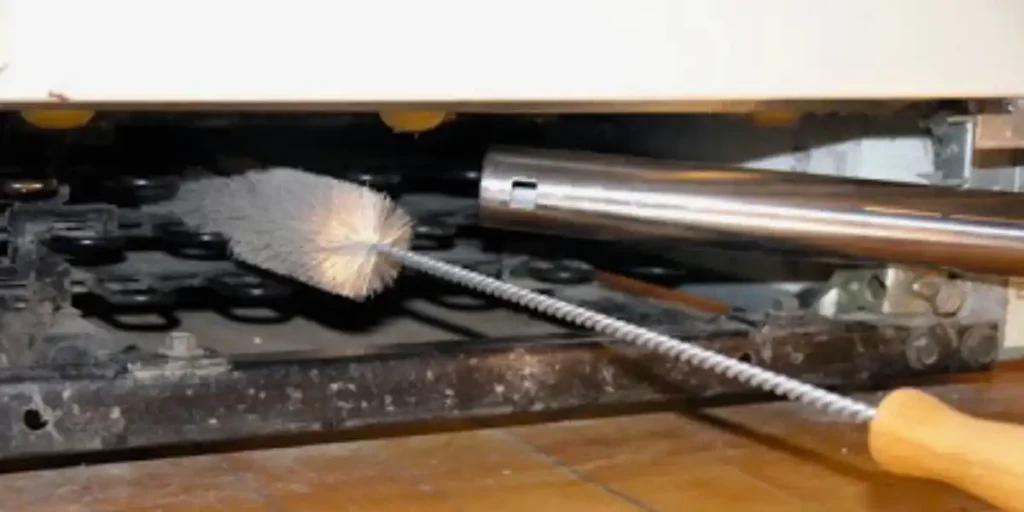
Using a coil brush or a soft-bristled brush, gently brush your fridge coils to remove any stubborn dust and dirt that may be stuck between them.
Again, be careful not to bend or damage any of the tubes or wires.
Step 5: Wipe your fridge coils
Using a damp cloth or a sponge, wipe your fridge coils to remove any remaining dust and dirt.
You can also use a mild detergent or vinegar to clean any grease or stains on your coils.
Step 6: Replace any parts you removed
After you have cleaned your fridge coils thoroughly, replace any parts you removed such as grill or panel. Make sure they are securely attached and aligned.
Step 7: Plug in your fridge
Plug in your fridge back into the power source and check if it is working properly. You should notice an improvement in its cooling performance and energy efficiency.
Tips to Prevent Refrigerator Coils from Getting Dirty Again
Clean Coils Yearly
You should clean your refrigerator coils at least once a year, or more often if you have pets or live in a dusty environment.
Cleaning your refrigerator coils regularly will help them perform better and last longer.
You can use a vacuum cleaner with a brush attachment, a coil brush, a cloth, and some mild soap to clean the coils. You can also hire a professional service to do it for you if you prefer.
Leave Space for Airflow
You should leave some space between your fridge and the wall to allow proper air circulation and prevent dust accumulation.
Your fridge needs some breathing room to function properly. If your fridge is too close to the wall, it will not be able to dissipate the heat effectively and will attract more dust to the coils.
You should leave at least two inches of space between your fridge and the wall on all sides.
Set Optimal Temperatures
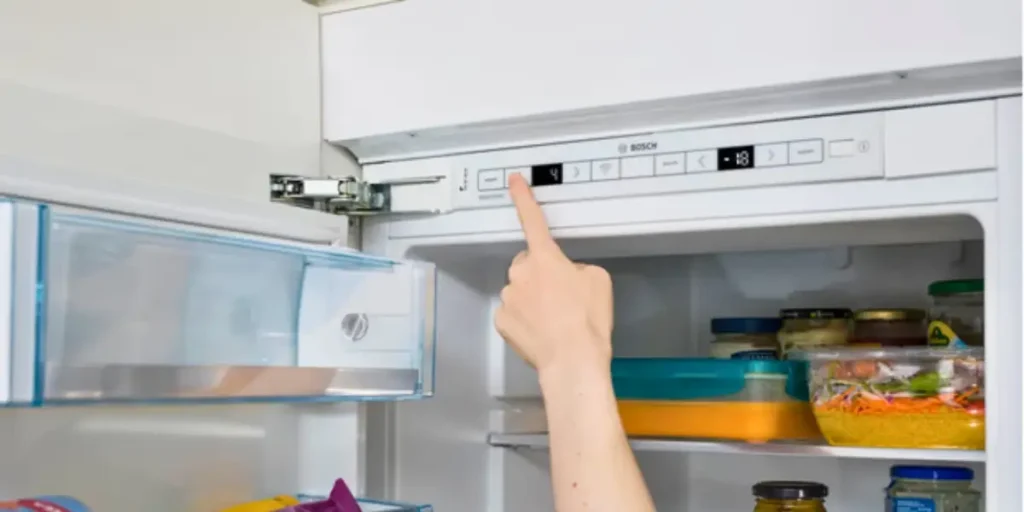
You should set your fridge temperature between 37°F and 40°F and your freezer temperature between 0°F and 5°F to optimize the cooling efficiency and reduce the compressor workload.
Setting your fridge and freezer temperatures too high or too low can affect the cooling performance and make your compressor work harder than necessary.
This can cause more wear and tear on the coils and increase your energy consumption. You can use a thermometer to check the temperatures inside your fridge and freezer and adjust them accordingly.
Keep Door Closed
You should keep your fridge door closed as much as possible to prevent warm air from entering and condensing on the coils.
Every time you open your fridge door, you let warm air in and cold air out. This creates condensation on the coils and makes them work harder to maintain the temperature.
You should avoid opening your fridge door too frequently or for too long. You should also make sure that the door seals are tight and not damaged.
Cool Food Before Storing
You should avoid placing hot or warm food in your fridge as it will increase the heat load and make your compressor work harder.
Putting hot or warm food in your fridge will raise the temperature inside and force your compressor to run longer to cool it down.
This can strain the coils and waste energy. You should let your food cool down completely before storing it in your fridge.
You can also use shallow containers or divide large portions into smaller ones to speed up the cooling process.
FAQs
How do I know if my refrigerator coils are dirty?
You can check your refrigerator coils by looking behind or under your fridge and removing the panel that covers them.
If you see a lot of dust, dirt or debris on the coils, they are dirty and need to be cleaned.
When is the best time to clean refrigerator coils?
The best time to clean refrigerator coils is when they are not in use, such as before or after a grocery shopping trip.
You should also avoid cleaning them when it is very hot or humid outside, as this can affect the cooling process.
How often should I clean my refrigerator coils?
The recommended frequency of cleaning refrigerator coils varies depending on the model and the environment, but generally it is advised to do it at least once a year, or more often if there are pets or dust in the house.
Can I use compressed air to clean my refrigerator coils?
No, you should not use compressed air to clean your refrigerator coils. Compressed air can damage the tubes and wires of your coils, as well as blow dust and dirt into other parts of your fridge.
It can also create moisture that can cause corrosion or rust on your coils.
Can I hire a professional to clean my refrigerator coils?
Yes, you can hire a professional to clean your refrigerator coils if you are not comfortable doing it yourself or if you have a complex or high-end fridge model.
Conclusion
Refrigerator coils are important parts of your fridge that need regular cleaning to maintain their performance, efficiency, lifespan, and safety.
Cleaning refrigerator coils is a simple task that you can do yourself with some basic tools and precautions.
By doing so, you can save money on energy bills, prevent food spoilage and waste, protect your health and safety, and extend the life of your appliance
Resources:
1. https://www.energy.gov/energysaver/purchasing-and-maintaining-refrigerators-and-freezers
2. https://www.energystar.gov/products/appliances/refrigerators/best_practices
3. https://www.cdc.gov/foodsafety/food-poisoning.html
4. https://njaes.rutgers.edu/E340/

